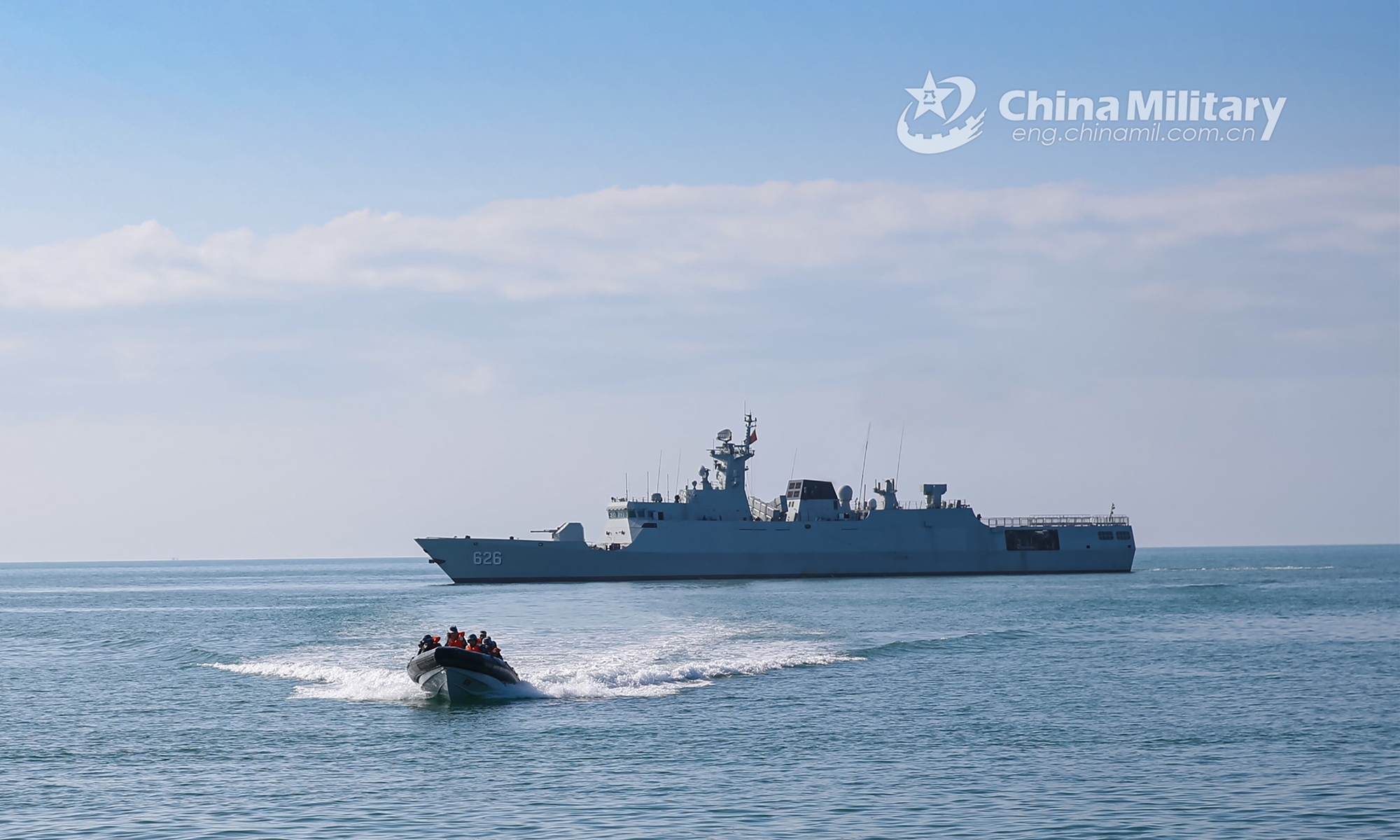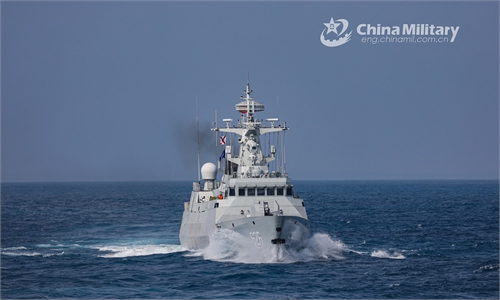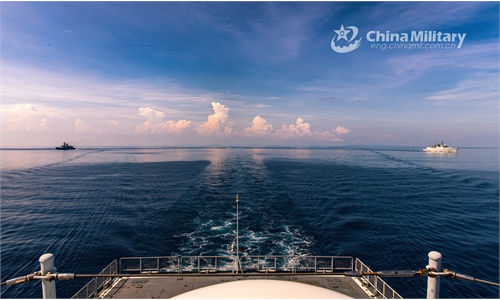US poses 'real risk of conflict' as politicians keep smearing China’s role in South China Sea

The photo taken on April 8, 2022 shows a speedboat sails full steam ahead during a combat training exercise somewhere in the South China Sea staged by a frigate flotilla with the navy under the PLA Southern Theatre Command in early April, 2022.Photo:eng.chinamil.com.cn
In what an old Chinese saying describes as akin to "a thief crying to stop a thief," the US on Tuesday accused China of increased "provocations" in the South China Sea, which was strongly slammed by Chinese military and marine affairs experts as a move to stir troubles on China's doorstep.
According to a Reuters report, Jung Pak, deputy assistant secretary for East Asia at the US State Department, said at a US think tank event that "there is a clear and upward trend of PRC provocations against South China Sea claimants and other states lawfully operating in the region," referring to the People's Republic of China.
She added that China's "provocative actions" "contribute to regional instability, damage the economies of other claimant states, undermine the existing maritime order, and threaten the rights and interests of all nations that rely on or operate in this vital waterway."
Speaking later at the same event, Ely Ratner, assistant secretary of defense for Indo-Pacific Security Affairs, said there had been "dozens" of incidents in the first half of the year involving the Chinese military in the South China Sea, a sharp increase over the past five years. "Beijing is systematically testing the limits of our collective resolve," he said.
The two officials' remarks came after US Secretary of State Antony Blinken issued a statement which expressed support for the so-called ruling of the arbitral tribunal made six years ago, to which the Chinese Foreign Ministry reiterated that China's position on the South China Sea arbitration is consistent and clear.
The so-called award of the South China Sea arbitration seriously violates international law including the United Nations Convention on the Law of the Sea. It is illegal, null and void. China neither accepts nor recognizes it and will never accept any claim or action based on the award, Chinese Foreign Ministry spokesperson Wang Wenbin said at a routine press briefing on July 13.
The two officials' remarks sing the same old tune about China, which aims to echo US Joint Chiefs of Staff Chairman Mark Milley who recently hyped that the Chinese military has become "significantly more aggressive and dangerous" over the past five years, Zhang Xuefeng, a Chinese military expert, told the Global Times.
"Their logic is quite weird. If it is 'aggressive' for the Chinese military to monitor and warn away foreign countries' ships and aircraft that conduct reconnaissance missions in China's waters, what about the US warships frequently trespassing in Chinese territorial waters of the Xisha Islands? What about Australia and Canada dispatching military aircraft from afar to the East China Sea and the South China Sea to scout? What about the US reconnaissance planes coming close off the waters near southeastern China almost every day? What about the US aircraft carrier strike group conducting military exercises in waters a few hundred miles from China?" the expert asked.
"Foreign vessels and aircraft have been stirring troubles on China's doorstep but were met with a minimum response from China. By smearing China, the US is redefining what 'aggressive' means," Zhang noted.
The US always claims their actions near China's territorial waters are in accordance with international law. By this logic, China has neither "been aggressive" nor violated any international law, Zhang said.
Tian Shichen, founder of the Global Governance Institution and director of the International Center for the Law of Military Operations, told the Global Times that "foreign vessels are allowed to navigate in waters outside the 12 nautical miles of the Chinese islands in the South China Sea. When they approach, the Chinese military would respond with tracking and surveillance."
If they enter China's territorial waters, China would definitely warn them away and any serious provocations would possibly lead to conflicts, Tian said.
"Their provocations are like a group of robbers coming from thousands of miles away to put a knife to your neck and asking you to give them your cash, but telling you to observe the rules, which is so ridiculous," Tian said.
The two officials' remarks also came ahead of meetings of Southeast Asian foreign ministers and partners next week in Cambodia. Chinese maritime affairs experts said it is the US' moves in the South China Sea that jeopardize stability and peace in the South China Sea, posing challenges to the maritime interests of China as well other regional countries.
"Some countries outside the region have been driving a wedge between China and ASEAN members in terms of economy, politics, trade and military cooperation. Their purpose is to form a small clique led by the US," Xu Bu, president of the China Institute of International Studies and former Chinese Ambassador to ASEAN, told the Global Times.
Whether it is Quad or AUKUS, they are all aimed at pushing countries in the Asia-Pacific to take sides to the benefit of the US, Xu said, noting that ASEAN members obviously have a clear intention of working with China to build the South China Sea into a sea of friendship, peace and cooperation.
Facts have proved that regional countries can deal with the South China Sea issue well by themselves. China could be a cornerstone in the region along with the country's development, while some countries outside the region instead always play the role of provocateur, experts said.



